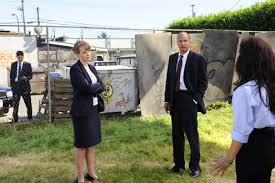Have you noticed that more and more disputes are being resolved through “arbitration” or “mediation”? It seems that more and more in the news lately, we have been reading about and hearing about these and other alternative conflict resolution methods – also referred to as alternative dispute resolution, or ADR. As a mediator, I am thrilled to see that in many different contexts – in the workplace, in schools, labor disputes, between individuals in minor disputes to the most contentious international conflicts.
However, there seems to be confusion and misunderstanding about the differences in the types of ADR processes. And, it doesn’t help when the media uses some of those terms improperly interchangeably.
For instance, recently, on June 29, 2012 in the “School Book” section of the New York Times an article was published entitled “Mediator Halts City’s Plan to Overhaul 24 Schools” authored by Al Baker. However, the very first sentence in the article indicates that it was an arbitrator that reached a determination in a dispute between the Unions and the Department of Education. You can read that article here.
While mediation has been a widely used technique dating back to at least the 14th century, it is often confused with arbitration which is a different process, and sometimes it is even confused with meditation, which has a similar spelling.
Mostly, I think, mediation is simply misunderstood.

I looked up the definition of “mediation” at www.dictionary.com which defines the term as:
1. action in mediating between parties, as to effect an agreement or reconciliation.
2. International Law . an attempt to effect a peaceful settlement between disputing nations through the friendly good offices of another power
and also at www.merriam-webster.com which defines the term as:
the act or process of mediating; especially : intervention between conflicting parties to promote reconciliation, settlement, or compromise
Aside from the fact that I never have found it to be helpful to define a term using the term itself, the definitions are still lacking. My explanation of mediation is that it is a process whereby each participant to the conflict consents to a voluntary process facilitated by a mediator. The mediator, in effect, steps in between the disputing participants and helps them to resolve their own dispute through various mediation techniques. Essentially, the mediator encourages each participant to express and understand each other’s perspective and then works with them to reach a resolution that considers the needs and interests of each. The mediator does not make any decisions, but is trained in helping the participants to making decisions together in resolving their own dispute. The process is voluntary, confidential and either participant can end the process at any time.

Arbitration, which is defined at www.dictionary.com as:
1. the hearing and determining of a dispute or the settling of differences between parties by a person or persons chosen or agreed to by them: Rather than risk a long strike, the union and management agreed to arbitration.
2. International Law . the application of judicial methods to the settlement of international disputes.
and at www.merriam-webster.com as:
the action of arbitrating; especially : the hearing and determination of a case in controversy by an arbiter
is a process where a third party, selected by the parties, makes a decision for the parties in a process similar to the adjudicatory process in court.
There are also processes which combine some of the features of mediation and arbitration in a type of ADR often referred to as “med-arb”. And, there is also collaborative process which has been utilized as well and which I previously discussed in an earlier post about options to resolving your divorce.
While there are many types of mediation styles, there are also many types of ADR options available. Conflict and controversy has been prevalent throughout the centuries and will continue, but the way in which people resolve their disputes has been evolving and changing. Resolving disputes in court and going through litigation is an option, but it can be very expensive and time consuming. So ADR options are available. Sometimes, such methods are sought out by the parties themselves and other times they are mandated by court or by political officials.
One of the reasons that mediation may be so misunderstood is because of the confidentiality of the process. Many thousands of people and organizations have utilized mediation successfully, but they do not frequently publicize or publicly mention the benefits from mediation, because they too value the privacy afforded by the process.


And, it was only recently, in 2011, that mediation was prominently shown in a weekly television series called “Fairly Legal” where the main character, Kate Reed (played by Sarah Shahi) quit her job as an attorney at her father’s law firm to become a mediator. In various episodes she is seen resolving various conflicts – sometimes humorous (such as in an episode where she mediates between an armed robber and a coffee shop owner) and also in the capacity as a court-assigned mediator to settle disputes before they go for trial.
So despite its historical longevity, it was only a year ago that mediation was finally recognized in a nationally-syndicated television series and even there, it doesn’t “fairly” and adequately represent the reality of how the mediation process works. So, there is still a lot of education that is needed and there are many educational opportunities – law schools now have courses, there are masters programs in graduate schools and even in elementary schools children are being trained to be peer mediators at their schools.
I’m curious whether any of my blog readers have experienced or heard about mediation or other types of ADR and what their experience has been. So, please, use the comments below to share what type of ADR you have used or heard about and tell us your experience.
Posted By:
Sabra Sasson
New York,New York